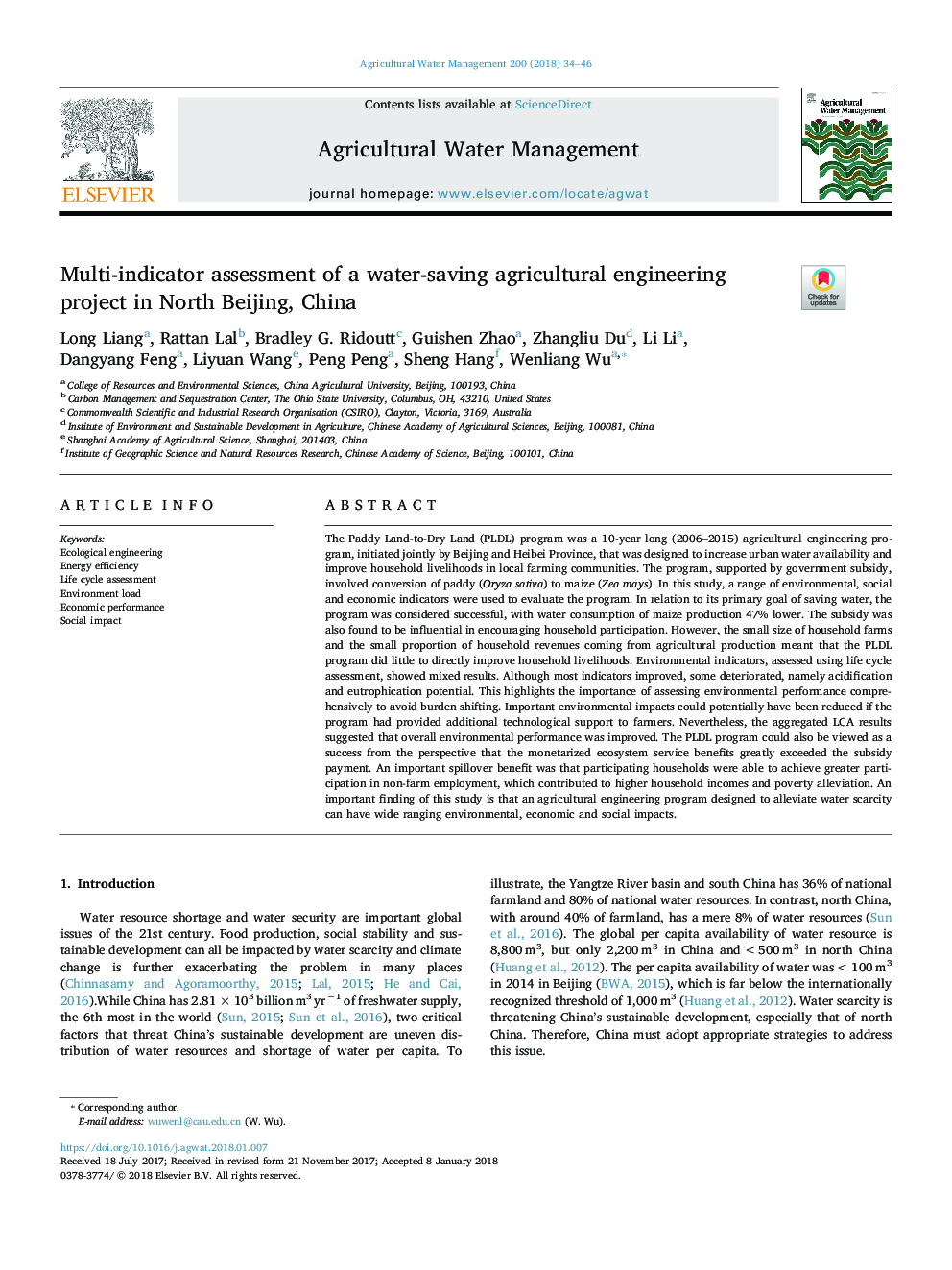| Article ID | Journal | Published Year | Pages | File Type |
|---|---|---|---|---|
| 8873109 | Agricultural Water Management | 2018 | 13 Pages |
Abstract
The Paddy Land-to-Dry Land (PLDL) program was a 10-year long (2006-2015) agricultural engineering program, initiated jointly by Beijing and Heibei Province, that was designed to increase urban water availability and improve household livelihoods in local farming communities. The program, supported by government subsidy, involved conversion of paddy (Oryza sativa) to maize (Zea mays). In this study, a range of environmental, social and economic indicators were used to evaluate the program. In relation to its primary goal of saving water, the program was considered successful, with water consumption of maize production 47% lower. The subsidy was also found to be influential in encouraging household participation. However, the small size of household farms and the small proportion of household revenues coming from agricultural production meant that the PLDL program did little to directly improve household livelihoods. Environmental indicators, assessed using life cycle assessment, showed mixed results. Although most indicators improved, some deteriorated, namely acidification and eutrophication potential. This highlights the importance of assessing environmental performance comprehensively to avoid burden shifting. Important environmental impacts could potentially have been reduced if the program had provided additional technological support to farmers. Nevertheless, the aggregated LCA results suggested that overall environmental performance was improved. The PLDL program could also be viewed as a success from the perspective that the monetarized ecosystem service benefits greatly exceeded the subsidy payment. An important spillover benefit was that participating households were able to achieve greater participation in non-farm employment, which contributed to higher household incomes and poverty alleviation. An important finding of this study is that an agricultural engineering program designed to alleviate water scarcity can have wide ranging environmental, economic and social impacts.
Keywords
Related Topics
Life Sciences
Agricultural and Biological Sciences
Agronomy and Crop Science
Authors
Long Liang, Rattan Lal, Bradley G. Ridoutt, Guishen Zhao, Zhangliu Du, Li Li, Dangyang Feng, Liyuan Wang, Peng Peng, Sheng Hang, Wenliang Wu,
